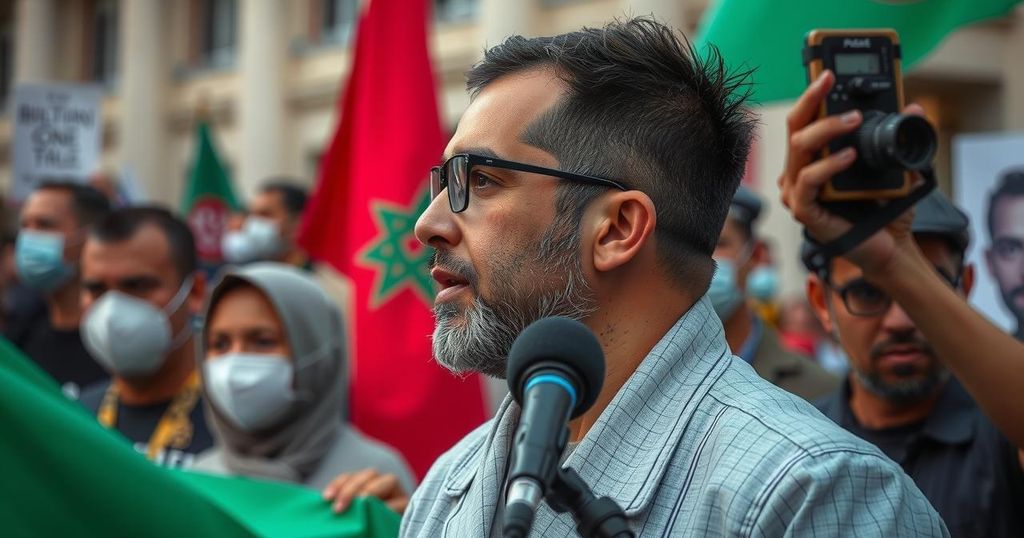Said Ait Mahdi, a Moroccan activist, was sentenced to three months in prison for leading protests against the government’s inadequate response to a devastating earthquake that killed nearly 3,000 people. His sentencing has drawn condemnation from human rights groups, citing political motivation behind the charges. Protests continue in the region, calling for better recovery measures and accountability from officials.
A prominent Moroccan activist, Said Ait Mahdi, has been sentenced to three months in prison for leading protests against the government’s response to a devastating earthquake that struck the Al Haouz region. His arrest has been heavily criticized by human rights advocates, who describe the charges—including defamation and inciting an unauthorized demonstration—as politically motivated. Ait Mahdi’s activism highlighted the government’s inadequate recovery efforts post-quake, which claimed nearly 3,000 lives and left thousands homeless. Despite facing potentially harsher penalties, his defense attorney noted that the sentence was less severe than anticipated. Previously, protests have arisen across the region, with locals accusing officials of poor management and expressing frustrations over their continued displacement in temporary shelters.
Following the earthquake, which severely impacted an already vulnerable region with significant indigenous populations, the Moroccan government has pledged substantial funds towards recovery. However, activist organizations assert that these measures are insufficient and have organized demonstrations calling attention to the slow reconstruction efforts. Support for Ait Mahdi has been vocal, with hundreds gathering outside the courtroom during his trial, advocating for his release and denouncing what they perceive as retaliatory tactics against him and fellow activists. The controversy surrounding his sentencing exemplifies the ongoing tension between civic activism and governmental authority in Morocco, especially regarding treatment of marginalized groups in the aftermath of the disaster.
The situation in Morocco regarding the earthquake response and subsequent activism is rooted in the events of September 2023, when a powerful earthquake devastated the Al Haouz region. This disaster not only resulted in considerable loss of life but also highlighted existing social and economic disparities. The government’s recovery efforts have faced scrutiny, with accusations of mismanagement and insufficient support for affected communities. Ait Mahdi’s activism emerged as a voice for those marginalized by these failures. His sentencing reflects broader issues concerning human rights, political dissent, and the treatment of activists in Morocco.
The sentence of Said Ait Mahdi represents a significant moment in the ongoing struggle for civil rights and political freedom in Morocco. Human rights advocates condemn the ruling, asserting that it reflects political retaliation rather than a legitimate legal process. As protests continue in the earthquake-affected areas, the case underscores the urgent need for accountability and reform in the government’s disaster response. The outpouring of support for Ait Mahdi indicates a growing public demand for justice and transparency in Morocco’s recovery efforts.
Original Source: www.independent.co.uk






